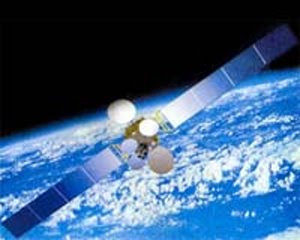
Nigerian media has reported that foreign telecommunication companies are refusing to use the services of NIGCOMSAT-1R because it is far more expensive than current market prices elsewhere, leading to claims that Nigeria’s indigenous satellite communications sector is uncompetitive.
According to a report in the New Telegraph, telecommunications service providers have indicated that the cost of obtaining services from Nigeria’s own satellite is far higher than the cost of using foreign facilities.
Nigeria launched its first satellite more than 10 years ago, aiming for significant savings in foreign exchange as well as high revenue potential for the government. But neither has occurred.
The New Telegraph report also indicates that investigations have shown many private operators, in addition to many government agencies, continue to patronise foreign satellites rather than use Nigeria’s own, which keeps revenue down and increases pressure on foreign exchange.
Olusola Teniola, president of the Association of Telecommunications Companies of Nigeria (ATCON), told the New Telegraph that most of the association’s members are still sourcing their satellite services from abroad because it is cheaper than in-country. “The issue with NigComSat is the pricing,” he said. “Service providers are taking capacities from foreign satellites because of the pricing, and this has been going on for quite some time.”
In order for NigComSat to attract local operators, Teniola explained that it must review its pricing, and also create service differentiation by offering what the telcos cannot get from the foreign satellite services. This corroborates the remarks of Destiny Amana, ATCON president and his counterpart at Nigeria Internet Group (NIG), who told the New Telegraph that the high cost of service from NigComSat had been driving many Internet Service Providers (ISPs) to patronise foreign satellites. It is far cheaper for them to obtain satellite services from outside the country, compared to using a local facility, he continued.
However, an executive director at NigComSat, Sam Osagie, told the New Telegraph that the operators might have made their decisions based on an old pricing regime from the satellite company. He added that NigComSat’s prices are competitive globally.
Further, the New Telegraph reports that stakeholders had expressed worries over time regarding the satellite’s “underutilised state” — which they believe has led to the satellite programme consuming more money than it generates. Disturbed by the situation, a member of the Nigerian House of Representatives recently raised a motion on the floor of the House for legislative actions on NigComSat business.
Danasabe Hosea expressed concern that the “multi-billion naira communication satellite is underutilised in space due to low patronage by government agencies and private companies, which continue to spend money running into billions of naira to procure satellite images from other service providers, services which Nigeria’s satellite could supply, thereby depleting our foreign reserves,” the New Telegraph reported.
Hosea explained that he was sure that NIGCOMSAT-1R, Nigeria’s existing communications satellite, has effective signal coverage of Nigeria and the West African sub-region; he believes that if federal and state government agencies are mandated to subscribe for their satellite services, the billions of naira being expended for their satellite images needs will be conserved.
Nigeria’s first communications satellite, NIGCOMSAT-1, was put in orbit in May 2007, but de-orbited in November 2008 following a power fault. Its replacement satellite, NIGCOMSAT-1R, built by China Great Wall Industries Corporation, was successfully launched in December 2011.
In 2015, NigComSat opened talks with China for the financing and construction of two new communication satellites, to be known as NIGCOMSAT-2 and NIGCOMSAT-3, which would serve as backup to NIGCOMSAT-1R, at a cost of U.S.$701 million.
Nigeria plans to launch these two additional satellites soon. According to Adebayo Shittu, Minister of Communications, the new satellites, now valued at U.S.$550 million, would be bankrolled by China EXIM Bank and China Great Wall Industries Corporation. The New Telegraph reports that Shittu had recently disclosed that the initial plan was for Nigeria to pay 15 per cent of the U.S.$550 million (U.S.$82 million) as counterpart funding for the production of the satellites. However, because it could not raise the necessary amount, the contract was renegotiated with the China EXIM Bank and China Great Wall Industries Corporation, the manufacturers of the satellites, and they have agreed to pay the entire U.S.$550 million to procure two new satellites.





